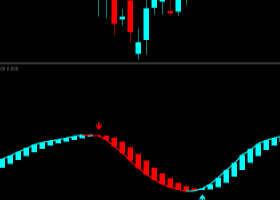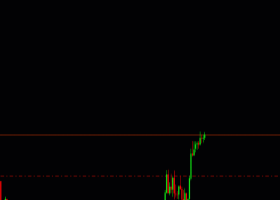Why traders don't listen, why most fail, and why they convince themselves they are right.
The Pitfalls of Ignoring Professional Advice in Trading: Understanding Failures and the Misguided Pursuit of Knowledge
Trading in financial markets can be an exhilarating endeavor, offering the promise of financial freedom and independence. Yet, the stark reality is that a significant portion of traders fail to achieve consistent success. Despite the abundance of professional advice available, many traders stubbornly refuse to heed it, opting instead to trust their instincts or seek guidance from dubious sources like YouTube. This phenomenon begs the question: why do traders ignore professionals, fail, and often believe they are right despite evidence to the contrary?
The allure of independence:
One of the primary reasons traders eschew professional advice is the allure of independence. Many enter the world of trading with a belief in their ability to outsmart the market and achieve success on their terms. This sense of self-reliance can lead them to disregard the wisdom and guidance offered by seasoned professionals. They prefer to rely on their own intuition, fueled by the illusion of control and the desire to make quick profits.
Overconfidence and cognitive biases:
Failure to listen to professionals often stems from overconfidence and cognitive biases. Traders may overestimate their knowledge and skills, leading them to dismiss advice that contradicts their beliefs. Additionally, cognitive biases such as confirmation bias, where individuals seek out information that confirms their existing beliefs while ignoring contradictory evidence, can reinforce their misguided convictions. This combination of overconfidence and cognitive biases creates a dangerous cocktail that blinds traders to potential risks and pitfalls.
The allure of quick fixes:
In today's digital age, the internet is awash with self-proclaimed trading gurus peddling 'get-rich-quick' schemes and strategies. YouTube, in particular, has become a breeding ground for dubious trading advice, promising overnight success with minimal effort. Traders drawn to the allure of quick fixes often fall victim to these charlatans, lured by the promise of easy money without the need for rigorous training or discipline. This reliance on unverified sources of information only serves to exacerbate their chances of failure.
The fallacy of self-validation:
Despite mounting evidence of failure, many traders persist in their misguided beliefs, convinced of their own infallibility. This phenomenon, known as the Dunning-Kruger effect, describes the tendency for individuals with limited knowledge or skills to overestimate their competence. Traders who fail to listen to professionals often fall prey to this fallacy, interpreting their failures as temporary setbacks rather than acknowledging fundamental flaws in their approach. This refusal to accept reality perpetuates a cycle of losses and reinforces their misplaced confidence.
The importance of proper training and education:
In contrast to the misguided pursuit of shortcuts and quick fixes, the importance of proper training and education cannot be overstated. The financial markets are complex and unforgiving, requiring a deep understanding of economic principles, market dynamics, and risk management strategies. Trained professionals, equipped with the knowledge and expertise honed through rigorous education and experience, offer invaluable insights and guidance that can help traders navigate turbulent waters.
Institutes as pillars of expertise:
Institutes dedicated to financial education serve as pillars of expertise in the trading world. Through comprehensive curricula and experienced instructors, these institutions impart the skills and knowledge necessary to succeed in the markets. From understanding fundamental analysis to mastering technical indicators, students gain a solid foundation upon which to build their trading careers. Furthermore, institutes often provide hands-on experience through simulated trading environments, allowing students to hone their skills in a risk-free setting.
Beware the Wolves: The Perils of Self-Proclaimed Trading Gurus
In the vast landscape of financial markets, there exists a breed of individuals who present themselves as trading gurus, promising the keys to untold riches and success. Yet, behind their charismatic façades lie hidden dangers that can spell disaster for unsuspecting traders. These self-proclaimed experts often lack the credibility, transparency, and track record necessary to substantiate their claims, making them particularly hazardous to those seeking guidance. Here's why traders should approach such individuals with caution and always demand proof of their expertise before accepting their help.
1. Lack of Credibility:
Self-proclaimed gurus typically lack the credentials and experience to back up their lofty claims. Unlike established professionals with proven track records and recognized qualifications, these individuals often rely on charisma and marketing tactics to attract followers. Their advice may be based more on personal anecdotes and speculation rather than sound financial principles and empirical evidence. Without a solid foundation of knowledge and expertise, their guidance can lead traders down a treacherous path.
2. Absence of Transparency:
Transparency is a cornerstone of trust in the world of finance. Yet, self-proclaimed gurus often operate in the shadows, withholding crucial information about their backgrounds, methodologies, and past performance. They may make bold promises without providing any verifiable evidence to support their assertions. This lack of transparency makes it difficult for traders to assess the credibility and reliability of their advice, leaving them vulnerable to manipulation and deceit.
3. Potential for Misleading Information:
In their quest for followers and fame, self-proclaimed gurus may resort to embellishing their achievements and distorting the truth. They may cherry-pick successful trades while conveniently ignoring losses or conveniently omitting crucial details that could tarnish their image. This selective presentation of information can create a false impression of expertise and success, leading traders to place unwarranted trust in their advice. Without a comprehensive and verifiable track record, traders risk being misled by deceptive claims.
4. The Danger of Unverified Strategies:
Trading strategies touted by self-proclaimed gurus may lack empirical validation and rigorous testing. What may appear as a foolproof system for generating profits could be nothing more than a risky gamble based on anecdotal evidence or backtested results. Without a robust track record demonstrating consistent returns across various market conditions, traders have no way of knowing whether these strategies are genuinely effective or merely the product of luck or statistical outliers.
Why Demand a Portfolio and Verified Track Record?
Given the inherent risks associated with self-proclaimed gurus, it is imperative for traders to exercise due diligence and skepticism before accepting their help. One of the most effective ways to separate genuine experts from charlatans is by requesting a portfolio, certification and verified track record. A legitimate professional will have no qualms about providing evidence of their past performance and credentials, as it serves as a testament to their competence and integrity.
A portfolio and verified track record offer concrete evidence of a trader's ability to deliver consistent results over time. By scrutinizing their past performance, traders can gain valuable insights into their trading style, risk management practices, and overall approach to the markets. Additionally, verifying the authenticity of their track record helps weed out impostors who rely on deception and manipulation to lure unsuspecting victims.
In conclusion, self-proclaimed trading gurus pose a significant threat to traders seeking guidance in the complex world of financial markets. Their lack of credibility, transparency, and verifiable track records make them particularly dangerous to those who entrust them with their hard-earned capital. By always demanding a portfolio and verified track record before accepting help from anyone, traders can safeguard themselves against falling victim to false promises and misleading information. In an industry where trust and integrity are paramount, diligence and skepticism are the best defenses against the wolves in sheep's clothing.
Conclusion:
In the high-stakes world of trading, the allure of independence, coupled with cognitive biases and the promise of quick profits, often leads traders astray. Ignoring professional advice and seeking knowledge in the wrong places can have disastrous consequences, perpetuating a cycle of failure and frustration. However, by recognizing the importance of proper training and education, traders can equip themselves with the tools and expertise needed to navigate the complexities of the financial markets successfully. Only by embracing the guidance of trained professionals and committing to continuous learning can traders hope to achieve lasting success in their endeavors.


